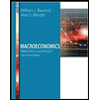The Effect of Regime Type on Economic Growth 1. On September 17, 2011, protesters occupied Zuccotti Park in the financial district of New York as part of a movement that became known as "Occupy Wall Street" (OWS). Many of the protesters had been inspired by the popular uprisings that had occurred in Egypt and Tunisia in early 2011. The OWS protesters were opposed to what they perceived to be the undue influence of banks and multinational corporations on the political system. They believed that the wealthiest 1 percent of society had a disproportionate share of capital and political influence, and they used the slogan "We are the 99%" to highlight the problem of social and economic inequality. The OWS led to the creation of the international Occupy Movement, which has organized protests in dozens of countries around the world. The occupation of Zuccotti Park ended on November 15, 2011, when the protesters were forcibly removed by the police. Imagine that you are discussing issues of inequality and the power of the financial sector with some of the "Occupy Wall Street" protesters in the fall of 2011. How would you explain the implications of the structural dependence of the state on capital to someone who doesn't understand why left-wing parties do not always "expropriate" the rich when they come to power?
The Effect of Regime Type on Economic Growth 1. On September 17, 2011, protesters occupied Zuccotti Park in the financial district of New York as part of a movement that became known as "Occupy Wall Street" (OWS). Many of the protesters had been inspired by the popular uprisings that had occurred in Egypt and Tunisia in early 2011. The OWS protesters were opposed to what they perceived to be the undue influence of banks and multinational corporations on the political system. They believed that the wealthiest 1 percent of society had a disproportionate share of capital and political influence, and they used the slogan "We are the 99%" to highlight the problem of social and economic inequality. The OWS led to the creation of the international Occupy Movement, which has organized protests in dozens of countries around the world. The occupation of Zuccotti Park ended on November 15, 2011, when the protesters were forcibly removed by the police. Imagine that you are discussing issues of inequality and the power of the financial sector with some of the "Occupy Wall Street" protesters in the fall of 2011. How would you explain the implications of the structural dependence of the state on capital to someone who doesn't understand why left-wing parties do not always "expropriate" the rich when they come to power?
Macroeconomics: Principles and Policy (MindTap Course List)
13th Edition
ISBN:9781305280601
Author:William J. Baumol, Alan S. Blinder
Publisher:William J. Baumol, Alan S. Blinder
Chapter5: An Introduction To Macroeconomics
Section: Chapter Questions
Problem 1TY
Related questions
Question
Asaaa

Transcribed Image Text:The Effect of Regime Type on Economic Growth
1. On September 17, 2011, protesters occupied Zuccotti Park in the financial district of New
York as part of a movement that became known as "Occupy Wall Street" (OWS). Many of
the protesters had been inspired by the popular uprisings that had occurred in Egypt and
Tunisia in early 2011. The OWS protesters were opposed to what they perceived to be the
undue influence of banks and multinational corporations on the political system. They
believed that the wealthiest 1 percent of society had a disproportionate share of capital and
political influence, and they used the slogan "We are the 99%" to highlight the problem
of social and economic inequality. The OWS led to the creation of the international Occupy
Movement, which has organized protests in dozens of countries around the world. The
occupation of Zuccotti Park ended on November 15, 2011, when the protesters were
forcibly removed by the police. Imagine that you are discussing issues of inequality and the
power of the financial sector with some of the "Occupy Wall Street" protesters in the fall
of 2011. How would you explain the implications of the structural dependence of the state
on capital to someone who doesn't understand why left-wing parties do not always
"expropriate" the rich when they come to power?
Expert Solution
This question has been solved!
Explore an expertly crafted, step-by-step solution for a thorough understanding of key concepts.
Step by step
Solved in 2 steps

Recommended textbooks for you

Macroeconomics: Principles and Policy (MindTap Co…
Economics
ISBN:
9781305280601
Author:
William J. Baumol, Alan S. Blinder
Publisher:
Cengage Learning

Economics: Private and Public Choice (MindTap Cou…
Economics
ISBN:
9781305506725
Author:
James D. Gwartney, Richard L. Stroup, Russell S. Sobel, David A. Macpherson
Publisher:
Cengage Learning

Microeconomics: Private and Public Choice (MindTa…
Economics
ISBN:
9781305506893
Author:
James D. Gwartney, Richard L. Stroup, Russell S. Sobel, David A. Macpherson
Publisher:
Cengage Learning

Macroeconomics: Principles and Policy (MindTap Co…
Economics
ISBN:
9781305280601
Author:
William J. Baumol, Alan S. Blinder
Publisher:
Cengage Learning

Economics: Private and Public Choice (MindTap Cou…
Economics
ISBN:
9781305506725
Author:
James D. Gwartney, Richard L. Stroup, Russell S. Sobel, David A. Macpherson
Publisher:
Cengage Learning

Microeconomics: Private and Public Choice (MindTa…
Economics
ISBN:
9781305506893
Author:
James D. Gwartney, Richard L. Stroup, Russell S. Sobel, David A. Macpherson
Publisher:
Cengage Learning

Macroeconomics: Private and Public Choice (MindTa…
Economics
ISBN:
9781305506756
Author:
James D. Gwartney, Richard L. Stroup, Russell S. Sobel, David A. Macpherson
Publisher:
Cengage Learning

Economics (MindTap Course List)
Economics
ISBN:
9781337617383
Author:
Roger A. Arnold
Publisher:
Cengage Learning
